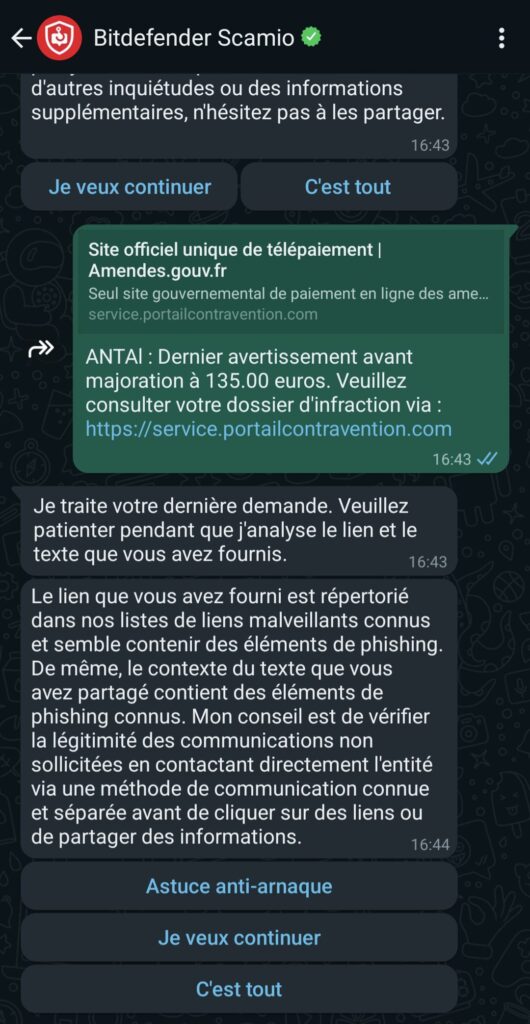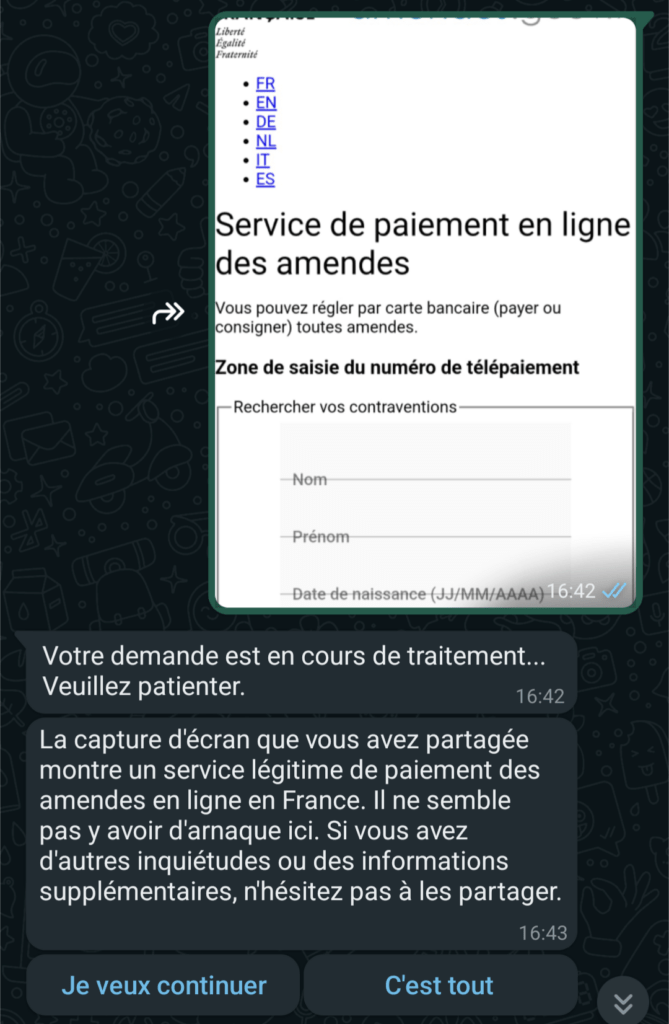A chatbot available on an online service as well as on WhatsApp and Messenger analyzes phishing SMS and emails and alerts the user when they are malicious. We tested it.
Health insurance, taxes, Colissimo, traffic tickets… Every month, the same phishing SMS and emails come back, again and again, to the point that we end up distrusting even legitimate messages. Cyber experts will tell you that a text message will most often be fraudulent – public services rarely communicate by telephone – but it is not always easy to identify email scams.
Advertisement
Contributory platforms on the web exist such as phishing-initiative.eu And scamdoc.com to analyze questionable links, as well as a free chatbot, Scamio, developed by the cybersecurity company BitDefender, the French version of which is released this April 25 on WhatsApp and Messenger. The conversation with the robot begins from this linkvalid on computer and smartphone.

All you have to do is send the last phishing SMS or email to the chatbot so that it analyzes the text as well as the link. The response generally takes around 30 seconds.
We tried with the last message asking us to “pay a ticket” (the author does not have a car) and Scamio was able to detect the malicious link. We also sent a simple Colissimo scam text, without the link, which the AI considered suspicious since it contained “ phishing elements. »
The user can also obtain relevant advice to avoid falling into the phishing trap: check the URL, never give out your personal information, do research, etc.
Advertisement
A personal search if the link is not recognized


Out of six phishing messages, Scamio detected four. Two links from malicious sites could not be analyzed correctly because they were not listed ” in the list of known malicious links. » The chatbot advises to stay « Be careful when interacting with unknown links. » Scamio is therefore a program that can be trusted in the majority of cases, but if the link is not recognized by the program, it will be up to you to check it.
The image part, on the other hand, is less relevant. Site copies made by hackers are relevant enough to fool AI and humans.
You will therefore have to return to traditional methods, by doing your research and comparing the links with those on the official page. You can also control the site creation date from platforms like Who.is. Tell yourself that the EDF site was not created three days ago.
